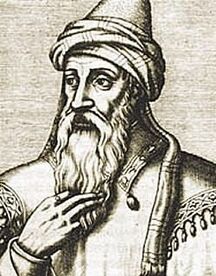(Adding categories) |
(Adding categories) |
||
| (One intermediate revision by the same user not shown) | |||
| Line 1: | Line 1: | ||
[[File:Star and cresent.png|thumb|276x276px|Islamic Star and Crescent ]] |
[[File:Star and cresent.png|thumb|276x276px|Islamic Star and Crescent ]] |
||
| − | '''Muslims''' are people who follow or practice '''Islam''', a monotheistic Abrahamic religion. Muslims consider the Quran, |
+ | '''Muslims''' are people who follow or practice '''Islam''', a monotheistic Abrahamic [[:Category:Religion|religion]]. Muslims consider the Quran, |
their holy book, to be the verbatim word of God as revealed to the Islamic prophet and messenger Muhammad. The majority of Muslims also follow the teachings and practices of Muhammad (sunnah) as recorded in traditional accounts (hadith). The derivation of "Muslim" is from an Arabic word meaning "submitter" (to God). |
their holy book, to be the verbatim word of God as revealed to the Islamic prophet and messenger Muhammad. The majority of Muslims also follow the teachings and practices of Muhammad (sunnah) as recorded in traditional accounts (hadith). The derivation of "Muslim" is from an Arabic word meaning "submitter" (to God). |
||
| Line 15: | Line 15: | ||
The [[Ayyubid|Ayyubid dynasty]] was founded by [[Saladin|'''Saladin''']] and centered in [[Egypt]]. In [[1174]], Saladin proclaimed himself Sultan and conquered the Near East region. The Ayyubids ruled much of the Middle East during the 12th and 13th centuries, controlling Egypt, Syria, northern Mesopotamia, Hejaz, Yemen, and the North African coast up to the borders of modern-day Tunisia. After Saladin, his sons contested control over the sultanate, but Saladin's brother al-Adil eventually established himself in [[1200]]. In the 1230s, Syria's Ayyubid rulers attempted to win independence from Egypt and remained divided until Egyptian Sultan as-Salih Ayyub restored Ayyubid unity by taking over most of Syria, excluding Aleppo, by 1247. In 1250, the dynasty in the Egyptian region was overthrown by slave regiments. A number of attempts to recover it failed, led by an-Nasir Yusuf of Aleppo. In 1260, the Mongols sacked Aleppo and wrested control of what remained of the Ayyubid territories soon after. |
The [[Ayyubid|Ayyubid dynasty]] was founded by [[Saladin|'''Saladin''']] and centered in [[Egypt]]. In [[1174]], Saladin proclaimed himself Sultan and conquered the Near East region. The Ayyubids ruled much of the Middle East during the 12th and 13th centuries, controlling Egypt, Syria, northern Mesopotamia, Hejaz, Yemen, and the North African coast up to the borders of modern-day Tunisia. After Saladin, his sons contested control over the sultanate, but Saladin's brother al-Adil eventually established himself in [[1200]]. In the 1230s, Syria's Ayyubid rulers attempted to win independence from Egypt and remained divided until Egyptian Sultan as-Salih Ayyub restored Ayyubid unity by taking over most of Syria, excluding Aleppo, by 1247. In 1250, the dynasty in the Egyptian region was overthrown by slave regiments. A number of attempts to recover it failed, led by an-Nasir Yusuf of Aleppo. In 1260, the Mongols sacked Aleppo and wrested control of what remained of the Ayyubid territories soon after. |
||
[[Category:Religion]] |
[[Category:Religion]] |
||
| + | [[Category:Muslims]] |
||
Latest revision as of 00:01, 20 August 2020

Islamic Star and Crescent
Muslims are people who follow or practice Islam, a monotheistic Abrahamic religion. Muslims consider the Quran,
their holy book, to be the verbatim word of God as revealed to the Islamic prophet and messenger Muhammad. The majority of Muslims also follow the teachings and practices of Muhammad (sunnah) as recorded in traditional accounts (hadith). The derivation of "Muslim" is from an Arabic word meaning "submitter" (to God).
The beliefs of Muslims include: that God (Arabic: الله Allāh) is eternal, transcendent and absolutely one (tawhid); that God is incomparable, self-sustaining and neither begets nor was begotten; that Islam is the complete and universal version of a primordial faith that has been revealed before through many prophets including Abraham, Ishmael, Isaac, Moses, and Jesus; that these previous messages and revelations have been partially changed or corrupted over time (tahrif) and that the Quran is the final unaltered revelation from God (Final Testament).
History of Islam During Crusades[]
Beginning in the 8th century, the Iberian Christian kingdoms had begun the Reconquista aimed at retaking Al-Andalus from the Moors. In 1095, Pope Urban II, inspired by the conquests in Spain by Christian forces and implored by the eastern Roman emperor to help defend Christianity in the East, called for the First Crusade from Western Europe which captured Edessa, Antioch, County of Tripoli and Jerusalem.
In the early period of the Crusades, the Christian Kingdom of Jerusalem emerged and for a time controlled Jerusalem. The Kingdom of Jerusalem and other smaller Crusader kingdoms over the next 90 years formed part of the complicated politics of the Levant, but did not threaten the Islamic Caliphate nor other powers in the region. After Shirkuh ended Fatimid rule in 1169, uniting it with Syria, the Crusader kingdoms were faced with a threat, and his nephew Saladin reconquered most of the area in 1187, leaving the Crusaders holding a few ports.
In the Third Crusade armies from Europe failed to recapture Jerusalem, though Crusader states lingered for several decades, and other crusades followed. The Christian Reconquista continued in Al-Andalus, and was eventually completed with the fall of Granada in 1492. During the low period of the Crusades, the Fourth Crusade was diverted from the Levant and instead took Constantinople, leaving the Eastern Roman Empire (now the Byzantine Empire) further weakened in their long struggle against the Turkish peoples to the east. However, the crusaders did manage to damage Islamic caliphates; according to William of Malmesbury, preventing them from further expansion into Christendom and being targets of the Mamluks and the Mongols.

Ayyubid empire[]
The Ayyubid dynasty was founded by Saladin and centered in Egypt. In 1174, Saladin proclaimed himself Sultan and conquered the Near East region. The Ayyubids ruled much of the Middle East during the 12th and 13th centuries, controlling Egypt, Syria, northern Mesopotamia, Hejaz, Yemen, and the North African coast up to the borders of modern-day Tunisia. After Saladin, his sons contested control over the sultanate, but Saladin's brother al-Adil eventually established himself in 1200. In the 1230s, Syria's Ayyubid rulers attempted to win independence from Egypt and remained divided until Egyptian Sultan as-Salih Ayyub restored Ayyubid unity by taking over most of Syria, excluding Aleppo, by 1247. In 1250, the dynasty in the Egyptian region was overthrown by slave regiments. A number of attempts to recover it failed, led by an-Nasir Yusuf of Aleppo. In 1260, the Mongols sacked Aleppo and wrested control of what remained of the Ayyubid territories soon after.